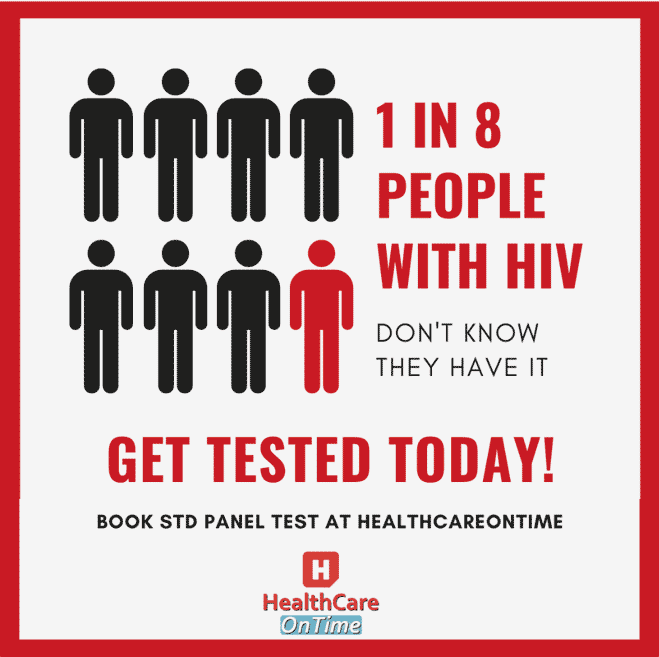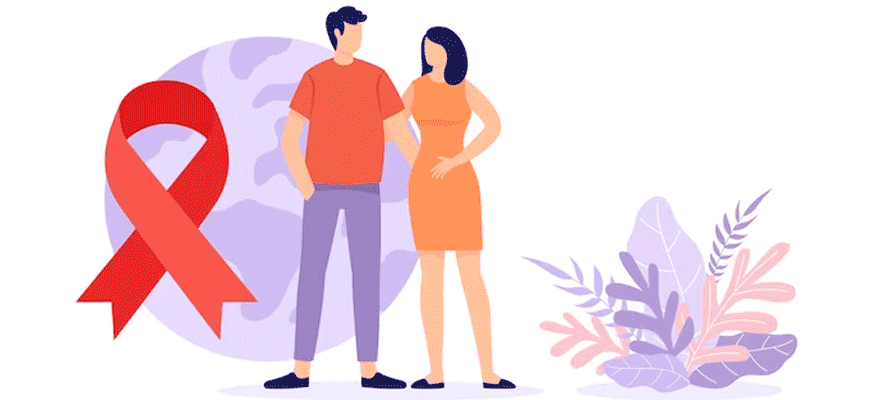For years and years, the present and preceding generations have grown up studying the ill effects and risks of unprotected sex. While unprotected sex is the primary reason behind the existence of life, when carried out carelessly, it becomes a carrier for sexually transmitted diseases (STDs). And before that, it becomes a reason for anxieties of several kinds, the concern for safety against HIV/AIDS being one.
In this blog, we will discuss the prevention of AIDS and HIV after an unprotected sexual encounter.
What is Unprotected Sex?
Unprotected sex refers to engaging in sexual activities without the use of any form of barrier protection or contraception, such as condoms, dental dams, or birth control methods. It involves direct genital contact and can include vaginal, anal, or oral sex without any physical barrier to prevent the exchange of bodily fluids.
First Things First: What Is HIV/AIDS?
HIV and AIDS are the terms most associated with sexually transmitted diseases. While there are many STDs apart from AIDS, it’s the most fatal of all.
What is AIDS?
AIDs elaborates as Acquired Immune Deficiency Syndrome. Wondering how do you get AIDS? As the name suggests, it is primarily acquired from another carrier, and sexual intimacy is one of its most common transfer modes.
What is HIV?
The cause of AIDs is HIV, which stands for Human Immunodeficiency Virus. Moving further, AIDS is a fatal health condition in which the body’s immune system becomes severely weak. This poses the risk of other infections and viral fevers, which also become difficult to cure due to weak immunity.
AIDs (Acquired Immunodeficiency Syndrome) is the late stage of HIV infection. It occurs when the immune system is severely damaged and the individual is at risk for life-threatening infections and cancers. AIDS can take many years to develop in some people, while others may progress to AIDS within a few years of being infected with HIV.
For these reasons, it’s crucial to know and take the correct preventive measures for AIDS.
What are the Chances of Getting HIV From One Night Stand?
- Receptive anal sex (“bottoming”): The estimated probability of acquiring HIV after one encounter is 1.4%. The receptive partner in anal sex is at a slightly higher risk due to the thin lining of the rectum, which can be more susceptible to tears and breaks in the skin, allowing for potential transmission of the virus.
- Insertive anal sex (“topping”): The estimated probability of acquiring HIV after one encounter is 0.1%. The insertive partner in anal sex has a lower risk compared to the receptive partner, as the anus has a thicker lining and is less likely to sustain tears or breaks during intercourse.
- Receptive vaginal sex (having a penis in your vagina): The estimated probability of acquiring HIV after one encounter is 0.08%. The risk of transmission during receptive vaginal sex is relatively low, primarily because the vagina is a less susceptible route for HIV transmission compared to the rectum.
- Insertive vaginal sex (placing your penis into someone’s vagina): The estimated probability of acquiring HIV after one encounter is 0.04%. The risk for the insertive partner in vaginal sex is generally lower than for the receptive partner, as the vagina has a larger surface area and is less likely to have open sores or breaks in the skin.
- Oral sex: The risk is considered low, with little to no risk of acquiring HIV. Oral sex carries a lower risk because the mouth and throat have thicker and more resilient linings, providing a natural barrier against HIV transmission. However, other sexually transmitted infections can still be transmitted through oral sex.
Unprotected Sex Risks
Unprotected sex can have serious consequences for your health and well-being. Read to know more about the risks of unprotected sex.
- Sexually Transmitted Infections (STIs): Unprotected sex increases the risk of contracting STIs such as HIV/AIDS, gonorrhea, chlamydia, syphilis, herpes, and HPV.
- Unplanned Pregnancy: Without contraception, unprotected sex can result in unintended pregnancies, leading to various challenges.
- HIV Transmission: Engaging in unprotected sex, especially with an HIV-positive partner, raises the risk of HIV transmission.
- Hepatitis B and C: Unprotected sex can increase the likelihood of contracting hepatitis B and C, viral infections affecting the liver.
To reduce these risks, use barrier measures such as condoms, think about contraception, get tested for STIs on a regular basis, and have open discussions about sexual health with partners.
Watch Out for Symptoms After Unprotected Sex to Prevent HIV
Symptoms of various STIs can manifest at different times after exposure. Here is a breakdown of symptoms for certain STIs based on the duration since potential exposure:
2 weeks later:
Symptoms of gonorrhea and chlamydia may include unusual discharge, pain during urination, bleeding after sex or between periods, throat pain (from oral sex), and stomach or testicular pain.
3 weeks later:
Pregnancy symptoms may include a missed period. Take a routine tests during pregnancy to confirm.
Genital herpes symptoms can appear as blisters, open sores, or a burning/itching sensation.
Early HIV symptoms may resemble the flu but can disappear quickly.
6 weeks later:
Signs of syphilis can include small sores or growths in the genital area or mouth, a blotchy rash on the palms or soles, fever, headaches, and joint pain.
3 months later:
Retesting for STIs is recommended to confirm negative results and assess treatment success. For syphilis, retesting after 3 and 6 months is advised due to potential antibiotic resistance.
It’s important to note that symptoms can vary, and some infections may be asymptomatic. If you notice any unusual signs or have concerns about potential STI exposure, it’s best to consult with a healthcare professional for appropriate testing and treatment.
How To Prevent HIV/AIDS After Unprotected Sex: HIV Treatment and Prevention of AIDS?
If you think you might have recently contracted HIV, don’t worry – you are not at the point of no return. Here are some HIV protection tips for you.
- Get Tested For HIV: It is crucial to undergo an HIV-1 RNA – Quantitative PCR as soon as possible after engaging in unprotected sex. This diagnostic tool can determine your HIV status by measuring the amount of HIV genetic material (RNA) present in your blood.
- PEP (post-exposure prophylaxis): It is a series of pills an individual can take within 72 hours of being exposed to the virus. But, yes, it’s crucial to note that every hour is important. The sooner you start the dosage, the better and quicker results you may get.
After the first dosage, you can continue with the PEP dosage at least 1-2 times a day after 28 days. The medicines in PEP are antiretroviral medications (ART). These medicines help stop HIV from spreading through the body.
Moreover, it’s also crucial to note that PEP is only a solution for emergency situations and should be taken with prescription and caution.
- Seek Medical Support: It can be helpful to talk to a healthcare provider, counselor, or support group after a potential exposure to HIV. They can provide emotional support and help you navigate the steps to prevent HIV.
Did You know:
Over 84 million people worldwide have contracted HIV since 1981, with the highest prevalence in sub-Saharan Africa.
Around 1 in 7 Americans with HIV are unaware, highlighting the importance of regular testing.

A Note From HealthcareOnTime
Unprotected sex carries a high risk of HIV/AIDs transmission, Using condoms consistently and correctly during all sexual activity is one of the most effective ways to prevent the spread of HIV/AIDS and other sexually transmitted infections.
Ultimately, the best way to prevent HIV/AIDS and other STIs is to have open and honest conversations with your sexual partners about your sexual health and history. By taking responsibility for your own health and taking steps to protect yourself and others, you can help to reduce the spread of HIV/AIDS and create a healthier, safer world for everyone.
Tagged In: HIV Symptoms, HIV Treatment, HIV Causes, HIV, AIDS, Unprotected Sex
Sources
Ref Links:
- https://www.hiv.va.gov/patient/faqs/postexposure-prophylaxis.asp
- https://www.plannedparenthood.org/blog/is-there-any-medicine-i-can-take-to-prevent-hiv-after-unprotected-sex
- https://www.ihv.org/news/2022-News/TheBody-What-Are-the-Chances-of-Getting-HIV-from-One-Exposure.html








